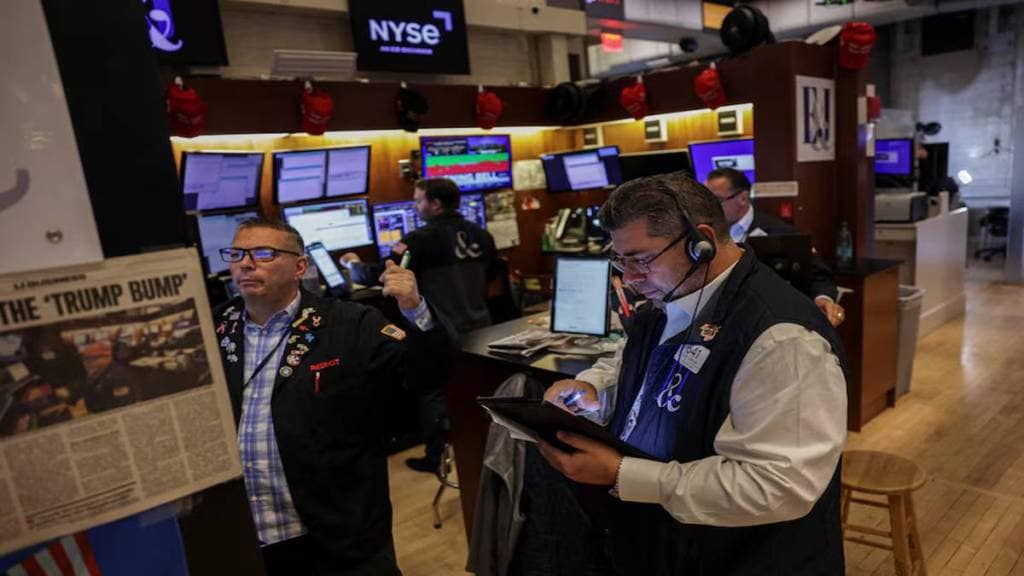Wall Street’s major indices opened higher on Wednesday as investors evaluated fresh inflation data and a new set of earnings reports from major companies. In the early hours of trading, the Dow Jones Industrial Average (.DJI) rose by 136.35 points, or 0.31%, reaching 44,159.76. The S&P 500 (.SPX) was up 8.43 points, or 0.14%, to 6,252.19, while the Nasdaq Composite (.IXIC) climbed 12.33 points, or 0.005%, to 20,684.59.
Following a data that revealed wholesale inflation slowed faster than analysts had predicted last month, stocksaw a boost on Wednesday as Treasury yields fell.Investors still processing Tuesday’s report, which showed that tariffs imposed by President Donald Trump are driving up prices on consumer products like toys, apparel, and other imports, found some respite in the data.Global markets are feeling the effects of Trump tariffs more.
Even after announcing the anticipated15% increase in sales for 2025, ASML, the leading provider of chipmaking equipment, cautioned that it might not experience any growth in 2026.
After exceeding Wall Street’s sales and profitability projections and improving its full-year outlook, healthcare behemoth Johnson & Johnson saw a 4.1% increase in value. Joaquin Duato, the CEO, expressed hope for “game-changing approvals and submissions” in late 2025, especially in the areas of bladder and lung cancer treatments.
In the US, bank stocks helped counter some of the trade-related concerns. PNC Financial Services rose 1.7% after reporting stronger-than-expected quarterly earnings, aided by loan growth despite what CEO Bill Demchak described as “an uncertain macro environment.” Bank of America and Goldman Sachs also advanced at least 0.5% each after delivering solid earnings surprises.
Trump has been calling for the Federal Reserve to lower interest rates sooner, and Wall Street loves lower interest rates because they drive up prices for stocks and other investments.
However, because lower rates can also lead to increased inflation, the Fed has been holding interest rates steady this year.
Before taking any action, Fed Chair Jerome Powell has been certain that he needs more information regarding the impact of tariffs on inflation and the economy.
The yield on the 10-year U.S. Treasury fell to 4.46% from 4.50% the day before in the bond market. Growing investor views that the Federal Reserve may start interest rate reduction later this year to boost the economy are reflected in the yield decline.
Trump has been calling for the Federal Reserve to lower interest rates sooner, and Wall Street loves lower interest rates because they drive up prices for stocks and other investments.
However, because lower rates can also lead to increased inflation, the Fed has been holding interest rates steady this year.
Before taking any action, Fed Chair Jerome Powell has been certain that he needs more information regarding the impact of tariffs on inflation and the economy.


